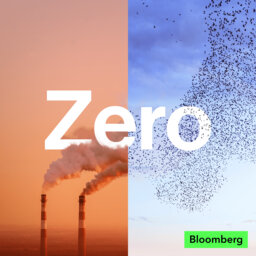Canada is a leading producer of oil and gas. It’s also one of the few G7 members with a carbon tax. As Minister of Environment and Climate Change in 2015, Catherine McKenna was charged with getting Canadians on board with that policy. One of the most important tactics was calling it “a price on pollution.” Carbon taxes are having a moment after the Paris Climate Finance Summit and Cath joins Akshat this week to talk about the political practicalities of passing a carbon tax. She has advice about who to lean on, handling threats, and why focusing on outcomes above all else is the key to climate policy that works.
Akshat will be traveling to Singapore, Sydney, Melbourne and Delhi over the next few weeks. Fancy meeting for a drink? Sign up here.
More Links
- Interview of Justin Trudeau
- Carbon taxes at the Paris Climate Summit
- Transcript of this conversation with Catherine McKenna
- The World Bank 2023 Report on the State and Trends of Carbon Pricing
Zero is a production of Bloomberg Green. Our producer is Oscar Boyd and our senior producer is Christine Driscoll. Special thanks to Kira Bindrim, Dave Sawyer, Gernot Wagner, Nayeli Jaramillo-Plata, and Abraiya Ruffin. Thoughts or suggestions? Email us at zeropod@bloomberg.net. For more coverage of climate change and solutions, visit bloomberg.com/green
In 1 playlist(s)
Zero
Zero is about the tactics and technologies taking us to a world of zero emissions. Each week Bloombe…Social links
Follow podcast
Recent clips

Lessons to avoid societal collapse, from 5,000 years of history
42:57

(Sponsored Content) Evolving Money: Blue Chip Meets Blockchain
16:48

Ethiopia’s fossil fuel car ban is a vision of the future
32:37
 Zero
Zero